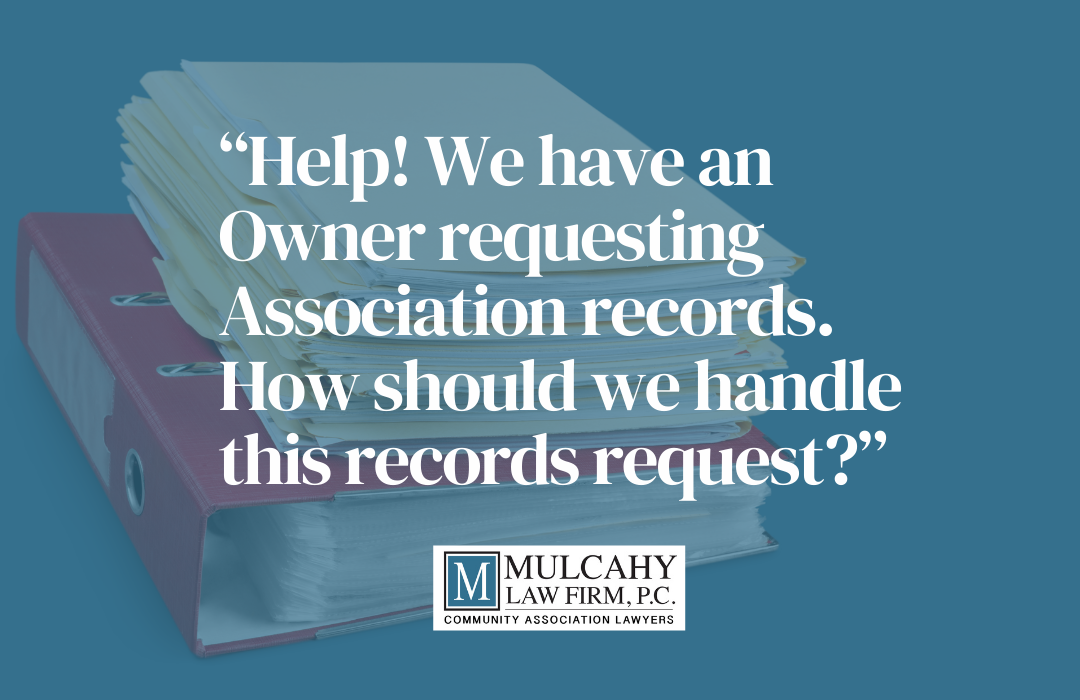HOA and condo owners in Arizona have broad legal rights to inspect and copy their association’s books and records. In fact, there are very few association records an association can withhold from disclosure to its members.
Arizona law requires planned communities (A.R.S. Section 33-1805) and condominiums (A.R.S. Section 33-1258) to make all financial and other records of the association reasonably available for examination by a member or a member’s designated agent. Accordingly, if your board and/or management company receives a request to examine or receive copies of association records, your board has a statutory duty to respond.
Arizona law gives a board ten (10) business days to fulfill an owner’s records request. As such, all record requests should be handled promptly and deadlines should be calendared so that the records are timely turned over to a requesting owner. If, due to the large volume of the records requested, a board needs more than ten business days to fulfil the records request, it is important to immediately notify the member in writing that additional time may be needed and the estimated time of arrival for the requested documents.
It is important to note that members have the option to examine the records in-person and/or request copies of the records. If the member requests copies of the records, the association can charge the member a maximum of fifteen cents ($0.15) per page. Other than copy charges, the association cannot charge a member for making records available for examination (so, for example, the member can’t be charged the time for collecting and putting the documents together).
Under Arizona law, the board can withhold these documents from disclosure to owners:
- Privileged communication between an attorney for the association and the association.
- Pending litigation.
- Meeting minutes or other records of a session of a board meeting that is not required to be open to all members pursuant to section 33-1804/33-1248.
- Personal, health or financial records of an individual member of the association, an individual employee of the association or an individual employee of a contractor for the association, including records of the association directly related to the personal, health or financial information about an individual member of the association, an individual employee of the association or an individual employee of a contractor for the association.
- Records relating to the job performance of, compensation of, health records of or specific complaints against an individual employee of the association or an individual employee of a contractor of the association who works under the direction of the association.
Some common examples of records that must be provided to owners upon request are the following: regular board meeting minutes, year to date budgets, bank statements, balance sheets, check registers, audits/reviews/compilations and an owner’s roster with the owner’s names and property addresses.
Some common examples of records that may be withheld from disclosure to owners are the following: executive session meeting minutes, privileged communications between the attorney for the association and the board (opinion letters, emails), any document related to pending litigation involving the association, employee/independent contractor performance reviews, owner’s emails or telephone numbers (exception would be if owner’s agree to make this personal information public to other owners) and how much contractors/employees are paid.
It is important to note that if an association doesn’t have a document, the association’s board should just notify the requesting owner that the document doesn’t exist.
If an owner is unable to get the requested records from an association, the owner has legal remedies. The owner can file a complaint with the Arizona Department of Real Estate (Homeowners Association Dispute Process | Arizona Department of Real Estate (azre.gov)) or file a lawsuit in Superior Court to get an injunction compelling an association to provide its books and records.
If you are uncertain of whether a particular record may be statutorily withheld from disclosure, or if you have any other questions related to records requests, please contact Mulcahy Law Firm, P.C. for assistance.

